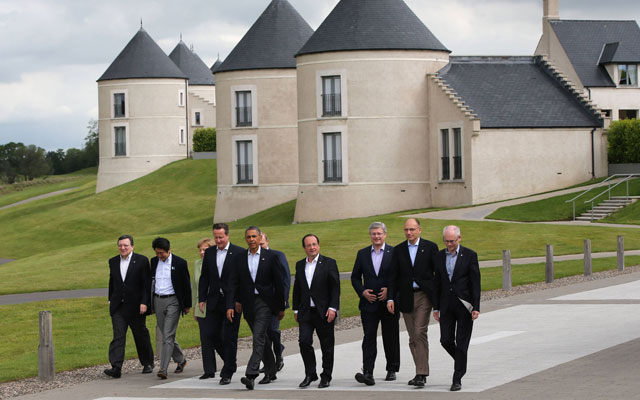This week, President Obama is in Lough Erne, Northern Ireland, for the G8 summit, an annual meeting of the world’s wealthiest countries: the U.S., Canada, France, Germany, Italy, Japan, Russia, and the United Kingdom.
Last year, world hunger was on the agenda as the President hosted G8 leaders at his Camp David retreat. This year, with the farm bill and food aid reform on the domestic agenda, the President has a unique opportunity to return to this theme and make a lasting impact on world hunger once and for all.
A good first step would be reforming food aid. Each year the U.S. provides nearly $2.2 billion in food aid to countries facing food shortages and starvation around the world. However, U.S. food aid must be purchased from U.S. producers and shipped on U.S.-flagged vessels, making these programs costly and inefficient.
In addition, some food aid is distributed through a wasteful process called monetization. In this process the U.S. donates food to charities, which then sell it in other countries and use the proceeds for development projects. This undercuts farmers in other countries. A 2011 Government Accountability Office report found that monetization activities wasted $219 million over three years. The President should instead champion reforms that eliminate monetization and allow food to be purchased anywhere and shipped in the most cost-effective way.
While President Obama is in Northern Ireland, he should take some cues from his European counterparts, as well. The European Union reformed its food aid policy effectively in the mid-1990s, eliminating the monetization of aid and sourcing its food from more efficient producers. This makes EU aid cheaper, more efficient, and more effective.
The President has said that “the United States has a moral obligation to lead the fight against hunger and malnutrition.” At the G8, President Obama can lead this fight by championing economic freedom and market-based reforms that would help combat starvation worldwide.





























